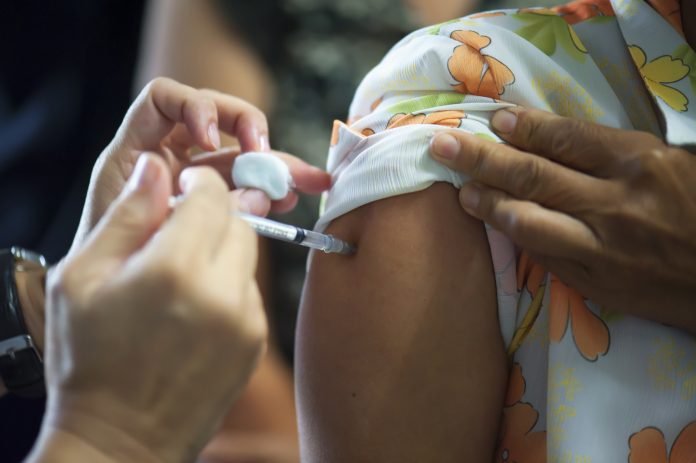Technology could play a major role in overcoming some of the barriers to the uptake of adult vaccinations argues a new report, “Data, bots and drones”, published by the International Longevity Centre UK (ILC)
“Data, bots and drones”, published by ILC during World Immunisation Week, looks at the role technology might play in increasing vaccination coverage among adults and older people.
The ILC report, supported by a grant from Sanofi, finds that the use of big data, gamification, the sharing economy and AI amongst others, offers opportunities to overcome barriers to vaccination uptake and counter misinformation and fake news on the value of vaccination.
The report highlights how growing anti-vaccination sentiments have been impacting on immunisation uptake across Europe and worldwide but notes that a “fightback” has begun with pro-science doctors and healthcare organisations developing a more savvy online presence and better content to respond to the anti-vaccination movement.
”Data, bots and drones” highlights how technology is already being developed to break down the barriers to vaccination.
- The UK leads the world in using weekly data to help support the uptake of influenza vaccination by older people.
- The US-based healthcare transport company Circulation has begun to leverage ride-sharing services such as Uber and Lyft to take patients to healthcare appointments.
- Mark Kendall from the University of Queensland is developing a postage-stamp-size nanopatch with thousands of tiny spikes on its surface, which could be used as an alternative to the needle for delivering vaccination.
- In India, a medical student has devised a digital necklace, which stores a wearer’s medical history, including vaccination records.
The report presents findings from a futures workshop held in Brussels in 2018. As part of the event, NGOs, expert policymakers and healthcare professionals suggested their own ideas for using technology to support the uptake of adult immunisation.
Ideas included:
- Influencers on Instagram could address adult immunisation and encourage younger generations to talk to their grandparents
- Wearable technology could measure our vital signs and signal when something isn’t normal. Personalised vaccination recommendations could be incorporated into smartwatches.
- A virtual lifelong personal health assistant could give us advice on health behaviour and remind us of the need for regular screenings
- Location-based alerts could prompt people to get vaccinated (e.g. when at-risk groups are near somewhere they can receive a vaccination)
- Immersive virtual reality could help people realise the impact of serious diseases
- Siri, Alexa and Google Home could help us book our vaccination appointment
- A pharmacy app could help with record keeping and vaccine booking
- “Bots” could to deliver information and have conversations with people about their concerns.
- An app could allow patients to ask questions anonymously of doctors or other specialists and get an instant reply
- Bar-coded information on vaccinations to track and trace who has been vaccinated and linked into medical records.
Among a set of recommendations in the report, ILC calls on European policymakers to:
- Develop a specific funding programme on “what works” to ensure that policy and financial investment in technology delivers its potential
- Legislate to ensure that products and services are accessible and usable for all ages and abilities.
- Recognise the challenges of demographic change and ageing populations and ensure policy supports vaccination as important across our lives. As part of this, develop an EU wide programme of action to encourage uptake of adult as well as child immunisation.
David Sinclair, Director, ILC said: “It’s important that we continue to protect ourselves from infectious diseases like the flu throughout our lives and into old age.”
“But in the same way as vaccination is not just for kids, nor is technology. Our research reveals there are lots of ways in which technology can help break down the barriers to uptake of adult vaccination. There are some great ideas out there.”
“But in the context of retirement and old age, we have to make sure that any technology introduced is useable and accessible. We need to ensure that digital exclusion is no barrier to older people benefitting from innovations in health and technology”.
Jane Barratt, International Federation on Ageing, said:
“Applied technology is undoubtedly a gamer changer in helping to create enabling environments that can support important personal health decisions by people of all ages, and especially older people.”
“The ILC report highlights important innovations across the world that deserve serious attention in the charge to improve uptake rates of adult vaccination and drive a life course approach to immunization.”
“At the heart of this report and global conversation is the subtle yet powerful ability of technology to combat ageism and age discrimination so the narrative around older people spins from burden to contribution.“
Michael Greenberg, Head of Global Medical Strategy, Sanofi Pasteur, said:
“Digital is part of our everyday life and vaccination at any age is a bedrock of public health. Using technology to find better ways to improve immunization coverage among adults is just common sense.”
“In our work with Google, we see that machine learning can help understand drivers and barriers to vaccination. Wearable data, such as from fitness trackers, can provide insights on the impact of vaccine-preventable diseases.”
“It’s exciting to see the work that ILC-UK has done in understanding the opportunities to be realized in this fast-moving area.”
The full report “Data, bots and drones: Can technology help increase uptake of adult immunisation?” can be found at https://ilcuk.org.uk/data-bots-and-drones-can-technology-help-increase-uptake-of-adult-immunisation. All references are available in the report.











